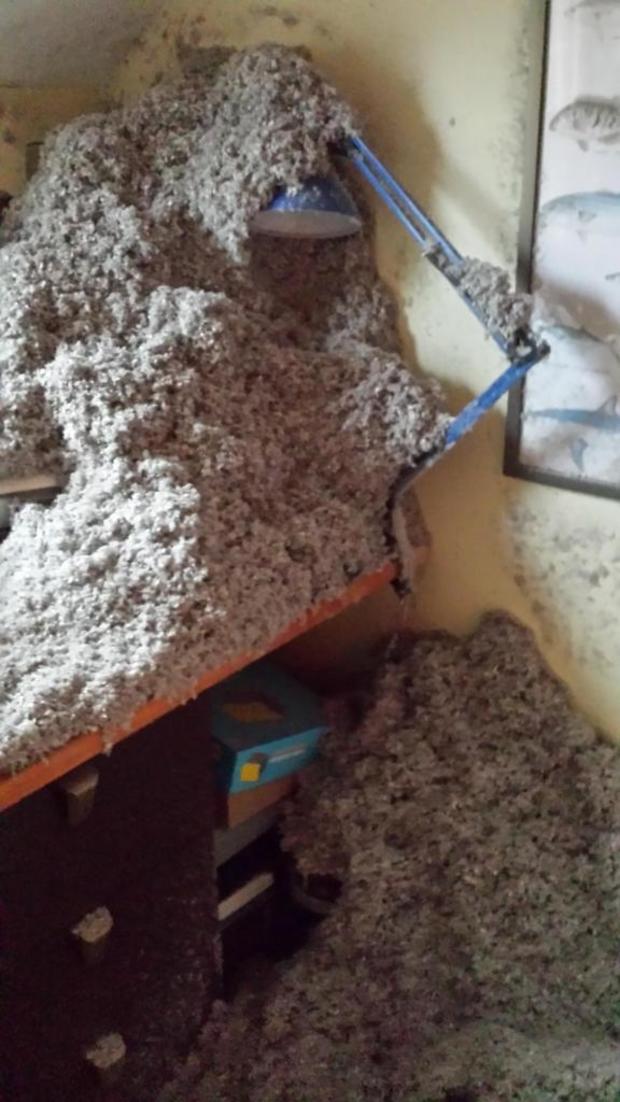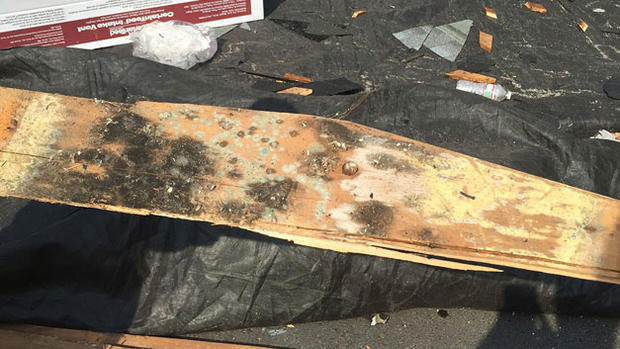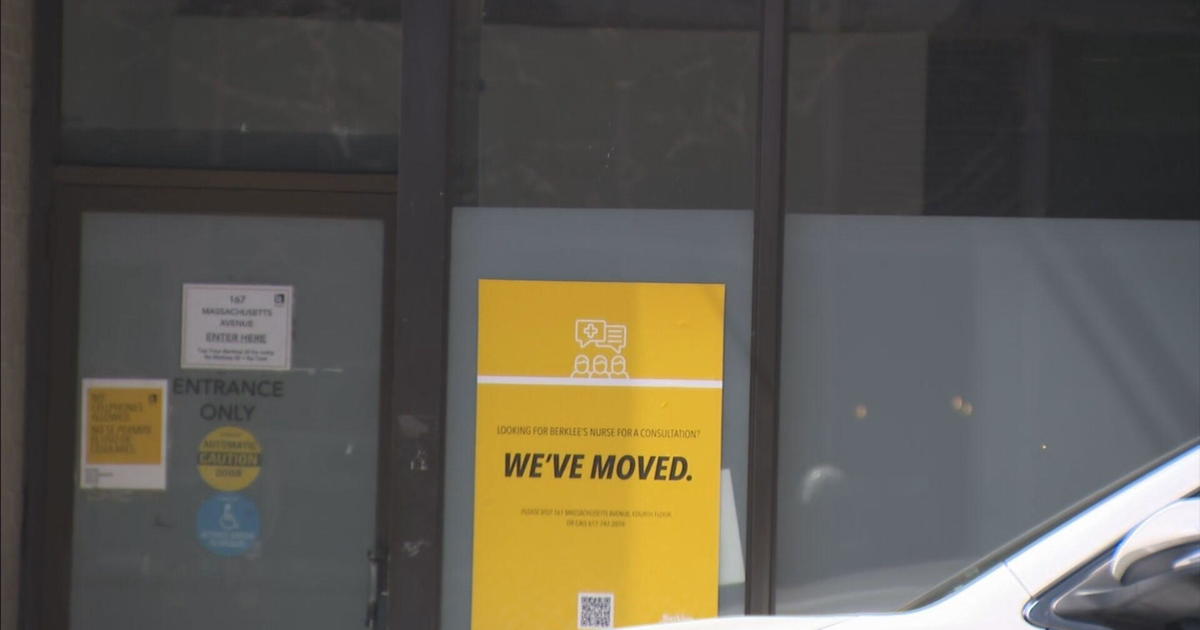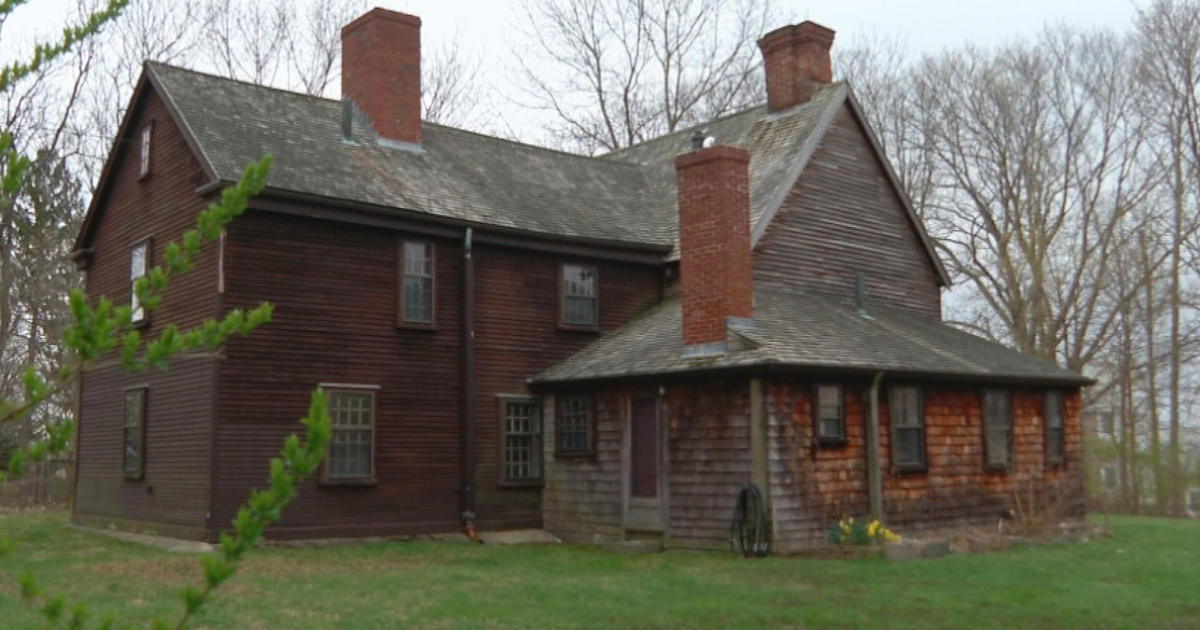I-Team: Customer Complaints Raise Questions About Mass Save Contractor Oversight
BOSTON (CBS) - When Celeste Bruno was approached by someone promoting free home energy assessments at the grocery store, it sounded like a no-brainer to sign up.
The no-cost service is one of the perks provided by the Mass Save program, the enormous initiative sponsored by the state's investor-owned utilities.
The program, which promotes subsidized energy-efficient upgrades for homeowners and businesses, is largely funded by a surcharge on ratepayers' monthly utility bills. Over the past three years, the program has provided more than $2 billion of energy-saving projects to thousands of electricity and natural gas customers across the state.
After signing up, an employee with Next Step Living, a Boston-based energy services firm, arrived at Bruno's home in Woburn to take inventory of potential energy-saving improvements. Bruno opted to add more insulation, a decision made easier because the Mass Save program would cover a large portion of the cost.
But then Bruno returned home from work on the day of the installation in April 2014.
"I opened up the kitchen cabinets and they were filled with insulation," Bruno said.
She walked upstairs for further inspection and found a gaping hole in the wall. Piles of insulation sat in her home office.
"It was like a disaster movie," Bruno said.
The Woburn homeowner immediately called Next Step Living and told the company to remedy the situation. When two workers showed up the next day with a shop-vac, Bruno got her insurance company involved and demanded a better resolution.
"We were out of the house for 10 days while the environmental cleaners were here," Bruno said.
Over in Malden, homeowner Charles Leo can relate to the headache. After Next Step Living performed insulation work in his attic, Leo said there was a long list of problems.
Workers had blocked the eve vents while spraying insulation, Leo said. As a result, the lack of ventilation created ice dams and mold growth. Leo said he had a tough time getting any answers from the company about fixing the damage.
"I went through a lot of red tape," he said. "It seemed like they were dodging us."
Leo also contacted his insurance company. The ensuing work cost nearly $20,000 to remove mold, install new insulation, and replace the roof.
Those are just two examples from a long list of complaints the I-Team discovered against Next Step Living, a firm that has grown tremendously since its inception in 2008—the same year the Mass Save program was created.
Thanks to aggressive marketing in places like grocery stores and public-private partnerships with area communities, Next Step Living has leveraged the Mass Save incentives into a booming business and one of the fastest-growing companies in the state. The company has expanded from 19 employees at the end of 2009 to more than 800 at the end of 2014.
However, the I-Team spoke to more than a dozen homeowners who shared horror stories about their experiences with Next Step Living. Some provided photos of damage inside their homes after employees performed insulation work.
Records the I-Team obtained also show more than 30 complaints filed with the Attorney General's Office.
And online, there are hundreds of customer reviews, the majority striking a negative tone. On Yelp, where Next Step Living has a 1½ rating, people complain about everything from no-show appointments to customer service issues to damaged property.
One Boston homeowner even said Next Step Living caused an explosion, leaving structural damage that displaced him from his home for months.
"This was a disaster," the man wrote. "The only thing that prevented this situation from being a horrific disaster is that no one was killed."
A Next Step Living representative responded on Yelp to the complaint, saying the "event is without precedent in our company's six-year history."
Next Step Living declined repeated interview requests by the I-Team. Instead of answering questions about the consumer complaints, a company spokesperson provided a written statement.
"Over the past eight years, Next Step Living has served more than 120,000 homes and has completed 35,000 insulation jobs," the statement said. "We aim to resolve all customer concerns if they occur, and this commitment is reflected in the Better Business Bureau's increasing our rating from an A to an A+ due to our record of resolving customer issues and the number of customers we serve."
But former customers like Leo were stunned when they went online to read reviews after their experiences.
"I don't know how a company has that many negative reviews and manages to stay partnered with the Mass Save program," Leo said.
Tom Regh is an energy services contractor who was appointed to serve on the Energy Policy Review Commission in 2013. One of the group's main tasks was taking a comprehensive look at the Mass Save program.
Regh started his business in 2008 and spent several years as a Mass Save contractor. However, he told the I-Team he stopped participating because he felt the program had quality issues and paid rates below market value for the weatherization work.
On the commission in 2013, Regh expressed these concerns, according to documents the I-Team reviewed.
Today, the business owner still believes the program structure may lead some contractors to hire less-skilled labor, rush projects, and use cheaper materials to maintain profitability.
"I think it's safe to say there have been issues with the quality of work," Regh said. "There are a variety of things that can go wrong if it's not done properly."
So who's in charge? A lot of consumers said they assumed the state government was calling the shots because of the "Mass Save" branding.
However, the state only provides a broad level of oversight through an Energy Efficiency Advisory Council. The Department of Public Utilities also signs off on three-year plans and budgets.
The utility companies are the entities who actually manage the Mass Save program.
Eversource and National Grid told the I-Team a consultant is responsible for monitoring the work of Mass Save contractors and performing inspections. Both utilities acknowledged they are aware of consumer issues with Next Step Living.
"We have taken several steps to improve their performance," an Eversource spokesman said. "On several occasions, we met with their now-former CEO to discuss these concerns. We continue to hold regular meetings with their current executive-level management and we require them to regularly demonstrate steps they're taking to improve their service to customers."
Eversource said inspections of Next Step Living's work have increased, and added it uses a compensation-based structure to manage performance.
A spokeswoman for National Grid provided similar comments.
"We have relayed our customers' concerns to executive level management and have demanded they take immediate steps to improve their service to our customers," a written response said.
Eversource and National Grid told the I-Team poor-performing contractors have been kicked out of the Mass Save program, but declined to identify them. They also would not say if Next Step Living has been placed on probation or some other remediation program.
The utilities also pointed out they don't refer ratepayers to Next Step Living. The company recruits all of its customers through its own marketing efforts.
Regh believes there should be more transparency in how contractors perform, especially since ratepayers help fund the Mass Save program.
"Someone is grading these companies. The public should have access to that information," Regh said.
Months after her insulation nightmare, Bruno spotted Next Step Living employees trying to sign up more customers at the grocery store. She immediately recalled her own experience and wondered if there is enough of a vetting process to protect consumers.
"I think the intent of the program is great. It has helped a lot of people save energy." Bruno said. "But these are our consumer dollars and if they are damaging our homes, it doesn't seem right."
Ryan Kath can be reached at rkath@cbs.com. You can also follow him on Twitter or connect on Facebook.





